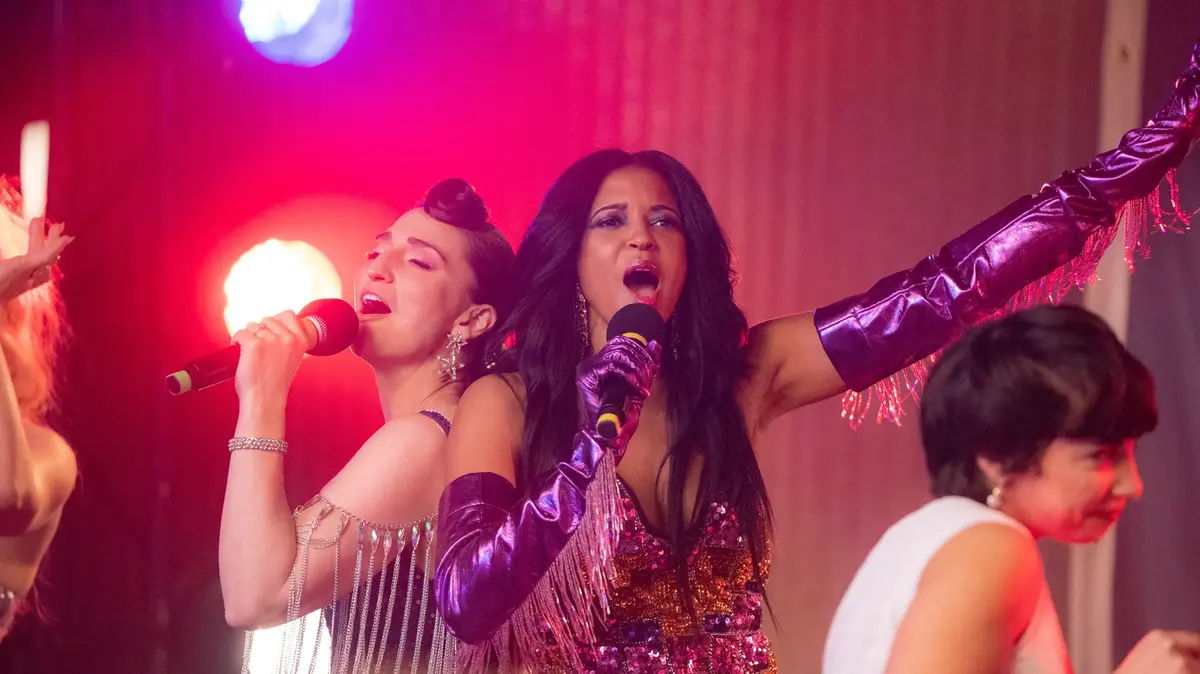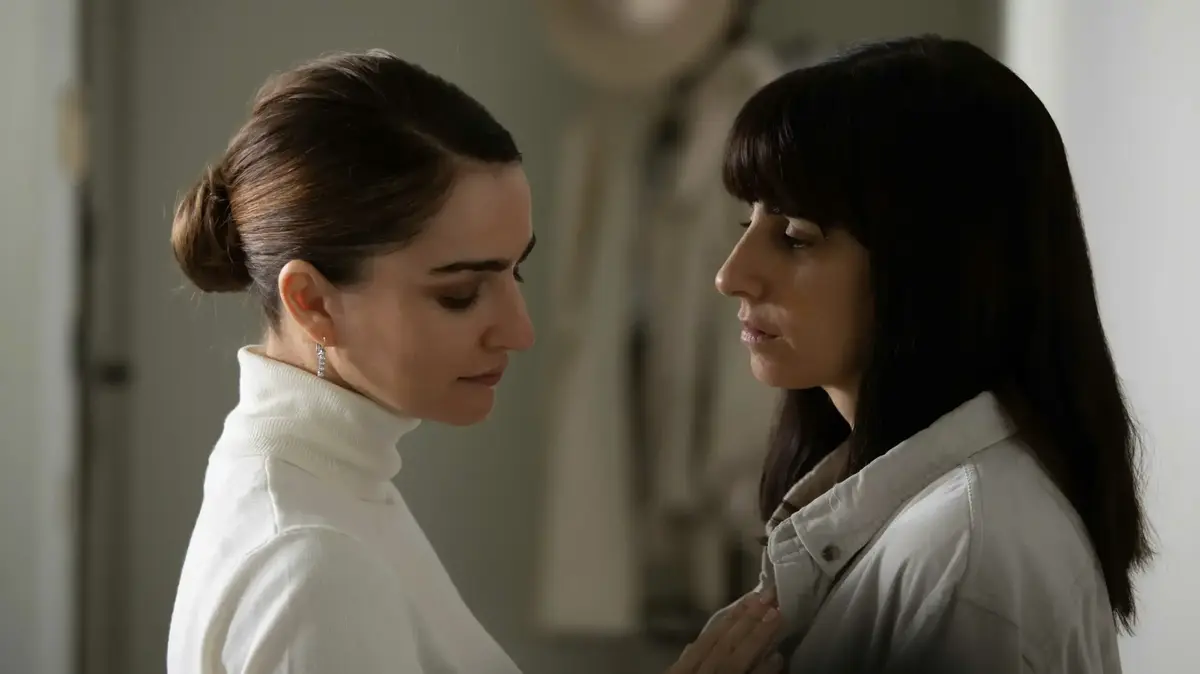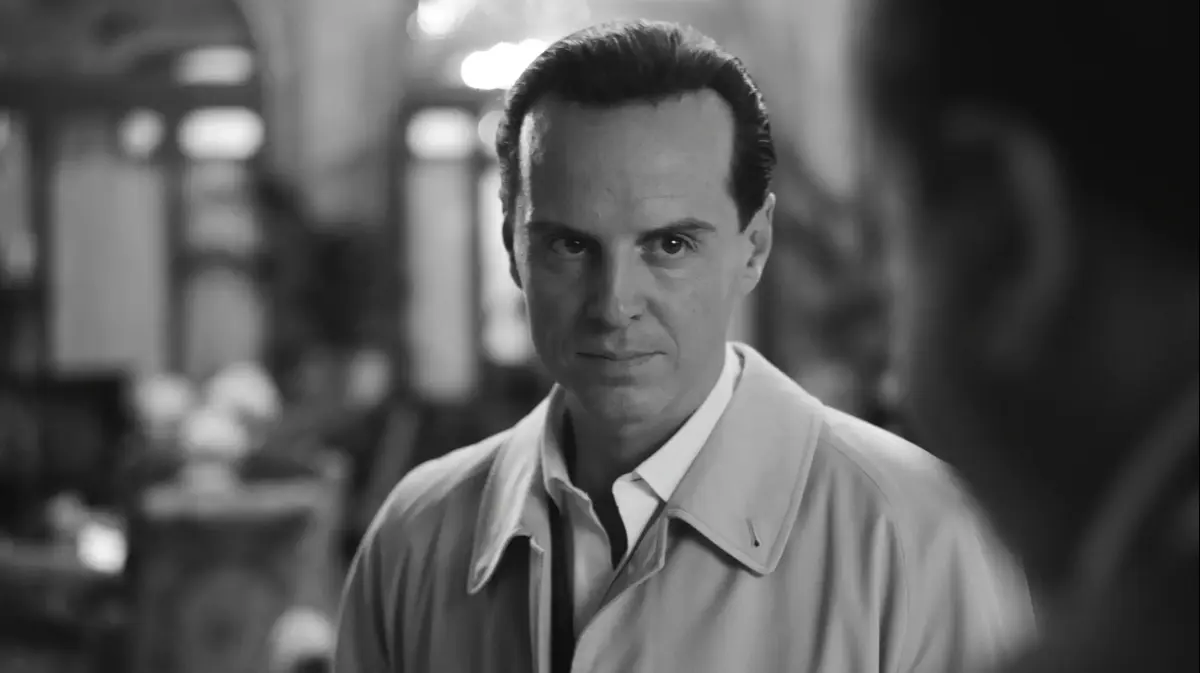culture
Theater
Movie review
What to see on Netflix on Passover?
Here are three hot new movies
The film that preserves the tradition of Yehuda Barkan and "Borat", the film that continues the French boom in streaming and docu on Pele that will interest even those who do not like football.
Three recommendations (kind of) for another Passover with Netflix
Tags
Netflix
Pele
Avner Shavit
Friday, 26 March 2021, 00:33 Updated: 16:28
Share on Facebook
Share on WhatsApp
Share on general
Share on general
Share on Twitter
Share on Email
0 comments
Ilana Dayan, "Fact"
Gal, Big Brother
Zehava Ben in the "Big Brother" final
Passover 1969: The first Seder night in the State of Israel after the declaration ...
Omar Inkelevich Amar
Lapid to Netanyahu: Show up for a confrontation live, the studios ...
Justice League
2021 Election: Promo broadcasts a special Walla! ...
2021 Election Broadcast, News 13, Tamar Ish-Shalom, Audi ...
Joey's dress break in "Friends"
An excerpt from the series "Naps" starring Louis Nofi
Trailer for the movie "Fabric Trip" (Netflix)
"Trip Trip"
As befits a small and remote industry, the Israeli film scene has not had too much of an impact on world culture, but is nonetheless responsible for cultivating one international sub-genre: thrillers.
As far as I know at least, this is a genre that existed on TV channels of different countries, but initially moved to cinema only in Israel.
This is thanks to box office hits like "Funny Israelis" and "We'll Meet in a Round" that flourished here between the late 1970s and the late eighties.
Over time, the genre has also evolved into Hollywood, and film series such as "Borat" and "Jackass" take care to cultivate the legacy of Yehuda Barkan, peace be upon him.
Now joining the club is another movie, which aired on Netflix over the weekend - "Bad Trip" named after him.
Like many movies from the recent period, it was long overdue and was also scheduled to be released, but due to the Corona its distribution was delayed and eventually switched to streaming.
The film stars Eric Andre and Lil Rel Hawari, not completely anonymous but also not particularly well-known actors.
They embody two idiots who roam around the United States, and in the best tradition of the genre make crazes at the expense of "real people" - how staged the result is or not, one can only guess.
More on Walla!
One hundred movies to watch on Netflix
To the full article
One can only guess how staged it is.
From "Bad Trip" (Photo: Netflix)
What's for sure: This is a pretty funny movie, especially if you have a seven-year-old mentality, or are able to connect with it for eighty minutes.
The inspiration for "Borat" is clear and stated: the tensions are gross, and take place in the darkest corners of the United States, allowing "Bad Trip" to move on the thin line between wild comedy and horror.
In a key scene, for example, the protagonists somehow manage to stick their genitals to each other, then go into a nearby barbershop and ask the barber to use his scissors to separate them.
We will not reveal what his reaction is, but it is very violent.
Later, the protagonist tries to infiltrate the opening of the exhibition of a girl he is compulsive towards.
The security guard of the place refuses to let him in, and it's good that way, but in the end he is convinced.
This is a disturbing and flawed scene: men who do stalking are not something worth laughing about right now or at all, and we will not reveal what happens once the obsessive man manages to get into the gallery, but amusing it certainly is not.
In this sense, too, "Trip Trip" preserves the classic motifs of Israeli suspense hits: a combination of infantile but effective humor, frightening statements about human nature and above all, a variety of ethical issues.
A variety of ethical issues.
From "Bad Trip" (Photo: Netflix)
"Just Black"
And we'll move on to another film that turns out to be a kind of documentary, that is, a staged documentary.
This time, it's a simple black, which was distributed in France last year and gained a lot of resonance, then was acquired by Netflix for international distribution, and went up in streaming about a week ago.
The film stars Jean-Pascal Zidi, a Frenchman whose parents are from the Ivory Coast, and a multidisciplinary artist who is his first major film project, and he won the Cesar for promising acting.
"Simply Black" describes how the rising star is trying to organize a march in Republic Square for the rights of blacks, and for that matter met with some of the prominent figures in black French culture, Omar C. for example.
"Simply black" is so called because that is how whites see blacks in France, first of all as blacks, only as blacks.
Blacks themselves, however, do not see themselves as blacks, but as something much more complex.
Here are just a few of the conflicts that arise here and reveal how complicated the politics of identities in France are, and perhaps in general:
Made a lot of noise in France.
From "Simply Black" (Photo: Gomon)
The tension between blacks of African descent and those of Caribbean descent ("You did not lift a finger when we were sold into slavery, you only helped whites").
The tension between the French trying to define what a black identity is and those who refuse to consider this consideration at all (in one of the best scenes in the film, a journalist almost hits the protagonist because he calls her a "black journalist" and not a "journalist").
The tension between black Frenchmen who carry this identity on the lapel and between those they see as "Ashkenazim" (while a good scene, one of the characters declares "a black man who has smoothed his hair does not deserve to be considered black").
The question is what price does a black Frenchman have to pay to be accepted into the national mainstream, and the paradox built into the fact that Omar C. is the most popular oasis in a country where almost fifty percent support Le Pen.
And of course, gender questions - the women the protagonist meets resent that they are always left out of the black struggle, and wonder why almost every black Frenchman who has gained fame goes out with a white girl.
And above all, the film is one big parody of the representation of blacks in French cinema.
Is it usually in the form of a criminal, rehabilitated or not rehabilitated, or of the groom in "why do I deserve it" style comedies?
Or "He Has Your Eyes," which just so happened to be previously acquired by Netflix.
The streaming service may not be aware of this, nor may it be aware of another irony: the fact that as an American corporation it sanctifies exactly the same political correctness that the film enjoys mocking.
More on Walla!
Netflix's new French series is great.
Too bad there are only five episodes so far
To the full article
Bonus: A pleasant surprise for "10 percent" fans.
From "Simply Black" (Photo: Gomon)
And two more comments: "Just Black" is full of internal jokes and encounters with various anchors who are not known outside of France, but it did not interfere with the universality of "10 percent", for example, and does not interfere here, speaking of the hit series, happy to announce that Steffi Selma (Sofia) emerges for her during the film.
It is also unfortunate to remark that as usual in French products that go up on Netflix (including "10 percent") the translation is a shameful gig, which was apparently translated from the English translation and without attention.
"Mixed marriage" becomes "relative marriage", "Islamist" becomes "Muslim" and a host of other flaws that are no less harmful, and all from a body that is culturally sensitive, that money is not lacking.
"Pele"
And after two seemingly documentary films, we'll finish checking out the truth, which came up on Netflix a month ago, and if you have not yet watched it - you should do so.
The reference is to "Pele", named after the Brazilian football legend, who celebrated eighty last October, but despite several attempts, no proper feature film or documentary has been made about him so far.
They finally made an interesting film about him.
From "Pele" (Photo: Netflix)
"Pele," first of all, is excellently made, and unlike many recent sports docu-movies, it does not look like a long-running magazine article but like a movie for everything.
Perhaps this is evidence that the film's producer is none other than veteran filmmaker Kevin McDonald, who was behind acclaimed works such as "One Day in September" and "The Last King of Scotland".
The result also makes good use of the 1970 Mexico World Cup footage. As directors Ben Nichols and David Treihon rightly testified, this is the most beautifully filmed sporting event in history, alongside the 1984 Los Angeles Olympics.
You don't have to be a sports fan to enjoy watching.
More than Docu on Pele, it's a film about Brazil, its social and political history, the way local society used football to define its identity, and the way the national dictatorship used it to strengthen its power.
All of these make "Pele" a fascinating document, regardless of the question of what generation you are from, where you are from and how interested you are in football.
Fela is still with us, only the films remain from Diego (Photo: Reuters)
The directors also enjoyed an intimate approach to the footballer, who has been interviewed countless times before, but this time does so in a much more open and honest way.
Those who grew up on his knees or admired his performance on the field, may be saddened to see him here with the help of a treadmill - alive, but not kicking.
On the other hand, one can take comfort in the fact that at the very least, Pele is still with us.
Maradona, who was born one generation after him and competes with him for the title of the greatest footballer of all time, is no longer.
Share on Facebook
Share on WhatsApp
Share on general
Share on general
Share on Twitter
Share on Email
0 comments








/cloudfront-eu-central-1.images.arcpublishing.com/prisa/S6ARYN3A4ZF23EJ2KLKXTSQGII.jpg)






